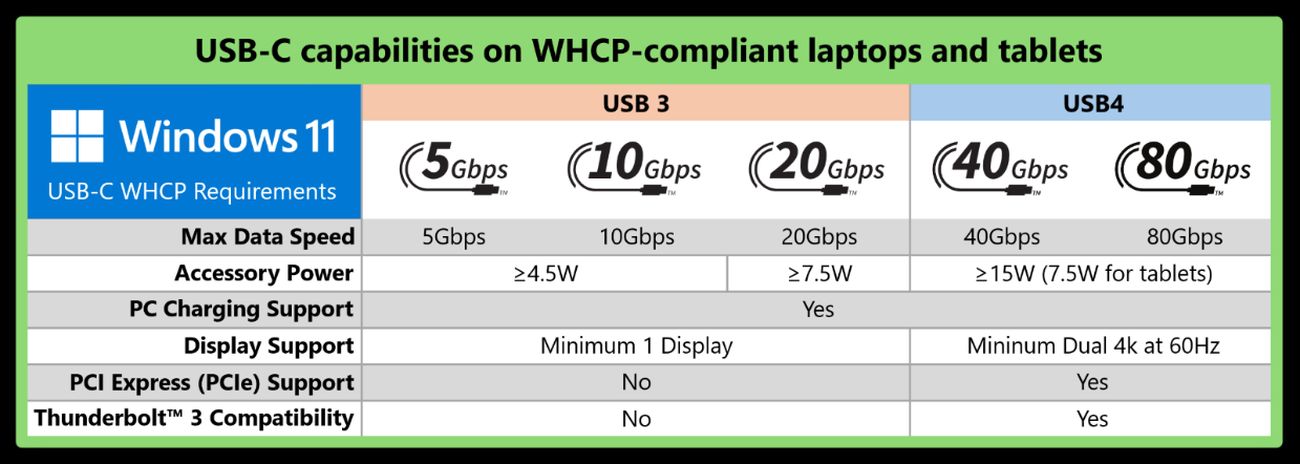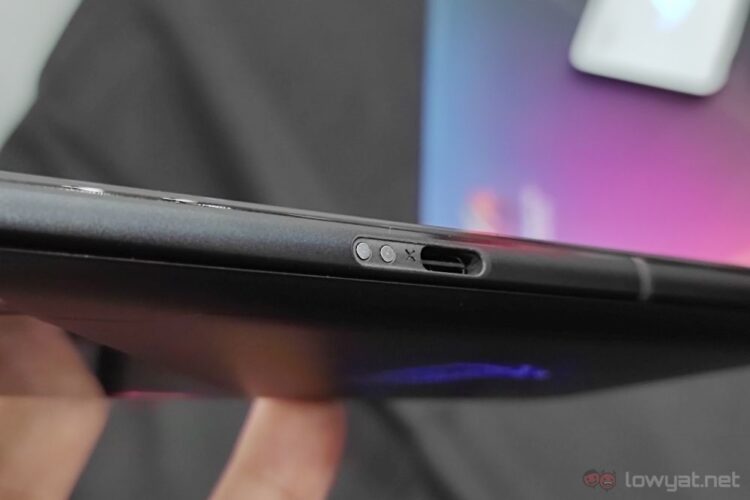Microsoft said that it will deliver on two firm promises to end the “USB-C confusion”. In a recent blog post, it seeks to standardise the connectivity standard via its updated Windows Hardware Compatibility Program (WHCP) initiative for Windows 11.
The new standardisation pledges that, moving forward, the connectivity standard will “just work” for all USB data, charging, and display functionality. Further, an additional rule by Microsoft means that USB 40Gbps ports will and must be fully compatible with both USB4 and Thunderbolt 3 peripherals.

The (sort of) good news is that, as of the publication of Microsoft’s post, the new standardisation rules should have already kicked in with certified Windows 11 laptops and tablets that ship out with Windows 11 24H2 installed.
When we set out to improve the USB-C experience with WHCP, we started by defining the customer promises that we wanted to achieve. This came down to two simple goals:
- USB Data, Charging and Display “just works” on all USB-C ports: Your favorite USB 1, USB 2, and USB 3 peripherals, chargers and displays will work exactly as advertised on any USB-C port on your WHCP-certified Windows 11 device.
- Systems that support USB 40Gbps also give full compatibility with USB4 and Thunderbolt™ 3 peripherals: On a WHCP-certified USB 40Gbps system, you can also plug in any USB4 or Thunderbolt™ 3 device and trust it will work every time on every port.
To ensure that certified Windows 11 PCs deliver on these goals, we introduced new and updated WHCP requirements alongside the release of Windows 11, version 24H2, that are laser focused on them.
To put it simply, Microsoft’s new rule means that every USB-C port on new Windows laptops and tablets need to support data, charging, and display output functionality, with som exceptions. Specifically, USB3 ports with 5Gbps, 10Gbps, and 20Gbps must support a minimum of one display output but not Thunderbolt 3 or PCIe. For USB4, the standard must support a minimum of outputs od dual 4K displays at 60Hz, both at 40Gbps and 80Gbps. And yes, they need to support PCIe And Thunderbolt 3 compatibility.
(Source: Microsoft, Tom’s Hardware)


